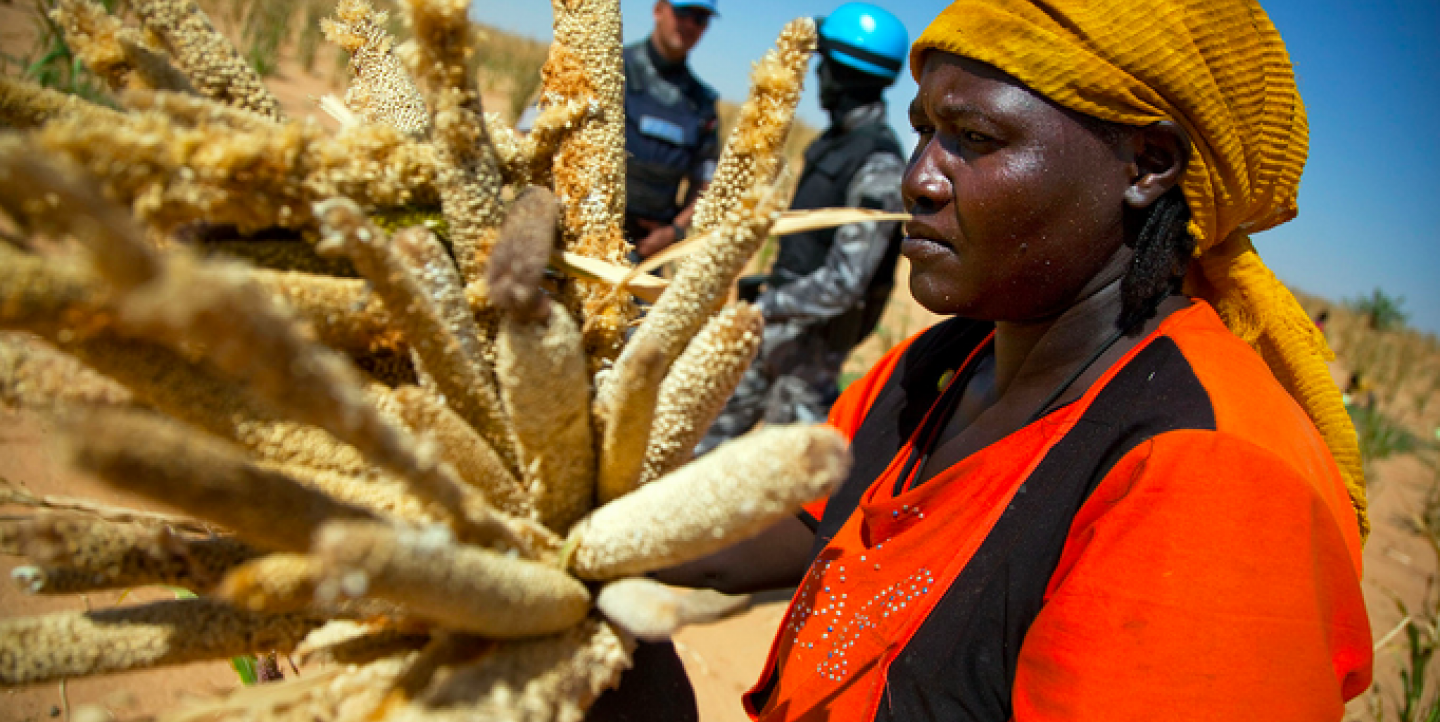A new two-part series on Kenya’s Citizen News TV takes viewers deep into war-ravaged Somalia. But instead of focusing on politics or terrorism, reporter Alex Chamwada and cameraman Moses Mwakisha focused on a lesser-known activity in the country: large-scale farming and its impact on food security.
“Somalia’s Food Basket,” which earned a prime-time slot on the popular channel, is one of 20 stories about agriculture and food security that were produced as part of the African Story Challenge, a two-year, $1 million program of reporting grants for investigative, digital and data-driven stories on key African health and development issues. The African Media Initiative (AMI) launched the contest in May with support from the Bill and Melinda Gates Foundation, the African Development Bank and the Alliance for a Green Revolution in Africa (AGRA).
“In Africa, there’s a kind of frustration or disconnect between what people want to hear and what gets published,” says Joseph Warungu, a recent ICFJ Knight International Journalism Fellow, who is helping lead the contest for AMI. “The media is focused on covering politics, but when you ask ordinary people in any country [in Africa] their priorities, they’ll say health, security, water.”
Editors and media operators often argue that reporting on development issues requires effort and resources that simply aren’t available. So the challenge is giving reporters grants of US$2,000 to US$20,000, as well as training and mentorship to help them refine their ideas.
The contest has five thematic cycles: Agriculture and Food security; Diseases: Prevention and Treatment; My Africa 2063 (stories focusing on the future of Africa’s development); Maternal and Child Health; and Business and Technology. After a call for proposals, journalists send story ideas, which are accepted in Arabic, English, French and Portuguese. A panel shortlists the top 20 ideas. Applicants attend training boot camps where they can refine their ideas and learn about data journalism and other advanced reporting techniques. The stories then go to an independent panel of judges, who select the winning story. Warungu says about 100 stories will receive grants over the course of the contest.
Stories from the first cycle, currently in the judging phase, focus on topics including farming fertilizer subsidies in Nigeria, land inequalities in South Africa and traditional versus modern crop preservation methods in Cameroon. Most of the published stories, like "Somalia's Food Basket," have been given prominent placement in the participant's media organization.
“We can’t displace sports or politics, but we want to give some emphasis to other issues and use the power of media to elevate the dialogue about Africa’s development,“ Warungu said. “These stories are proving that the development story can be told in compelling ways that are appealing to African audiences.”
As a key part of the challenge, participants are being encouraged to use the principles and techniques of good storytelling. Warungu says all stories should have characters at their core and give ordinary people a voice. Participants should also make use of data, deep research and investigative techniques. When bringing in expert voices, journalists are encouraged to avoid using confusing jargon, so stories are accessible to all audiences.
Winners from the agriculture cycle will be announced on November 7 in Addis Ababa during the African Media Leaders Forum. Before the winners are announced, Warungu will lead a panel discussion entitled “Africa's Food Renaissance - Media's role in helping Africa to deliver more, better, safer, nutritious and affordable food to its growing population.”
The second contest cycle, Diseases: Prevention and Treatment, is open for entries until November 3.
For more information, visit http://africanstorychallenge.com/.
Jessica Weiss, a former IJNet managing editor, is a Buenos Aires-based freelancer.
Image courtesy of Flickr user UNAMID under a Creative Commons license.

